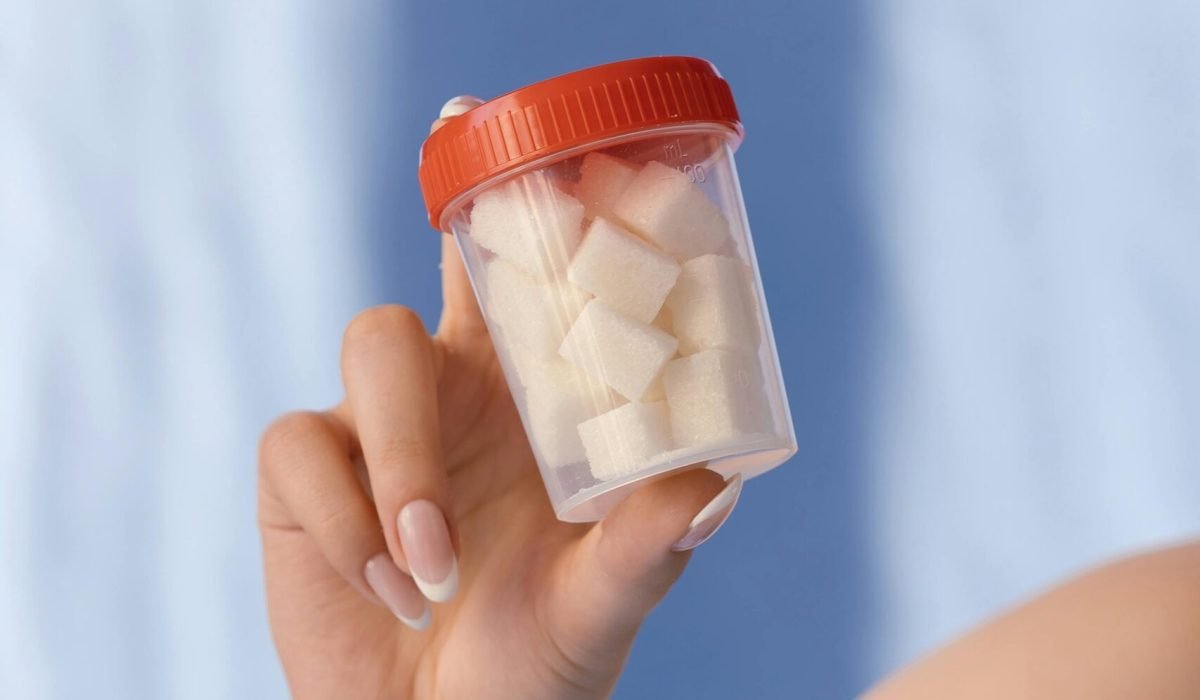The Truth About Artificial Sweeteners Blood Clots, and Xylitol: What You Must Know

Table of Contents
Introduction
Are artificial sweeteners really as harmless as we’ve been led to believe? Lately, there’s been a lot of buzz about artificial sweeteners blood clots and xylitol—and not the good kind. The combo of those three words is raising some serious eyebrows among scientists and health-conscious consumers alike.
Let’s break it all down and explore whether your favorite “sugar-free” snack might have a dark side.
What Are Artificial Sweeteners?
Artificial sweeteners are synthetic compounds designed to mimic the taste of sugar without the calories. They’re in your diet soda, sugar-free gum, protein bars, and even toothpaste. Sounds great, right? But as the conversation around artificial sweeteners blood clots, and xylitol heats up, we need to take a closer look.
Popular artificial sweeteners include:
Aspartame
Sucralose
Saccharin
Acesulfame potassium
Xylitol
Spotlight on Xylitol
Among these, xylitol stands out because it’s often marketed as a “natural” sweetener. Technically, it’s a sugar alcohol found in small amounts in fruits and vegetables. But don’t be fooled—most of the xylitol in commercial products is manufactured.
You’ll find xylitol in:
Sugar-free gums and mints
Oral hygiene products
Keto-friendly desserts
Diabetic candies
So why is xylitol now linked with concerns over artificial sweeteners and blood clots?
Artificial Sweeteners Blood Clots, and Xylitol: Understanding the Link
Recently, new research has raised alarm bells about artificial sweeteners blood clots, and xylitol. Some studies indicate that artificial sweeteners—especially sugar alcohols like xylitol—might increase the risk of blood clots by affecting how our platelets function.
Let’s be clear: this doesn’t mean your next xylitol-sweetened cookie will give you a stroke. But it does mean scientists are now digging into how these sweeteners interact with your cardiovascular system.

The Science Behind Blood Clots
Blood clots are basically your body’s way of plugging up injuries. But if they form in the wrong place—like your lungs or heart—they can be deadly. Known medically as thrombosis, these clots can lead to strokes, heart attacks, and pulmonary embolisms.
If artificial sweeteners like xylitol are contributing to these clots, even indirectly, it’s definitely worth taking seriously.
Artificial Sweeteners Blood Clots Research Findings
In a 2023 study, researchers found that xylitol, along with other sugar alcohols, might increase platelet activity—one of the key triggers for clot formation. While the study was preliminary, it brought the topic of artificial sweeteners blood clots xylitol into the scientific spotlight.
Key findings included:
Elevated levels of xylitol in blood plasma after consumption
Enhanced platelet reactivity in lab tests
Correlation between high xylitol levels and clotting markers
Xylitol’s Dual Reputation
Here’s the twist: xylitol is praised for dental health and managing diabetes. It doesn’t spike blood sugar and helps prevent cavities. But at the same time, it’s being looked at in the context of artificial sweeteners blood clots xylitol—a potential cardiovascular concern.
So, is xylitol a friend or foe? Maybe both.
Comparing Xylitol to Other Artificial Sweeteners
Unlike aspartame or sucralose, xylitol is less processed and closer to nature. But that doesn’t automatically make it safer. Some experts believe sugar alcohols may have a more direct effect on metabolic and vascular processes—raising the stakes in the artificial sweeteners blood clots conversation.
Regulatory Views on Artificial Sweeteners and Blood Clots
So what do health agencies say?
The FDA considers xylitol safe for general use.
The European Food Safety Authority (EFSA) has approved xylitol for food use.
However, none of these organizations have yet made definitive statements about artificial sweeteners blood clots, and xylitol together—largely because the research is still emerging.
Common Products Containing Artificial Sweeteners Xylitol
You might not realize it, but artificial sweeteners xylitol are in way more products than you think:
Diet sodas
Energy drinks
Low-carb snacks
Protein shakes
“Healthy” ice cream
If you’re consuming multiple of these daily, you may be stacking up risk without knowing it.
Who Should Worry About Artificial Sweeteners Blood Clots Risk?
While the average healthy adult might not need to panic, certain groups should be more cautious:
Individuals with a family history of blood clots
Those with cardiovascular issues
Diabetics (who often use xylitol as a sugar alternative)
If you fall into any of these categories, it’s smart to stay aware of how artificial sweeteners, blood clots, and xylitol intersect.
Safer Alternatives to Artificial Sweeteners
If you’re ready to cut back on artificial sweeteners xylitol, consider:
Stevia – Zero-calorie and plant-based
Monk fruit – Another natural low-calorie option
Honey – Natural but higher in sugar
Maple syrup – A tasty alternative in moderation
These may not be perfect, but they come without the artificial sweeteners blood clots xylitol baggage.
How to Reduce Your Risk
Here’s how to be smart:
Limit your daily intake of artificial sweeteners xylitol
Don’t stack sweetener products unknowingly
Stay active to reduce clot risk
Stay hydrated to help your blood flow better
And of course—talk to your doctor if you’re concerned.
What Doctors and Experts Say
Most health professionals agree: moderation is key. While the evidence about artificial sweeteners blood clots, and xylitol isn’t conclusive, it’s strong enough to warrant caution.
Until more research is done, it’s best not to overconsume xylitol or other artificial sweeteners.
Conclusion
The link between artificial sweeteners blood clots, and xylitol may not be fully proven yet, but it’s definitely something to watch. While xylitol offers some benefits, overconsumption might carry unforeseen risks—especially if you have underlying health conditions.
So be smart, read labels, and when in doubt, stick to moderation. Your body will thank you and to learn more click here.
FAQs
1. Does xylitol cause blood clots?
There’s no conclusive proof, but some studies show it might increase platelet activity, which can lead to clots. More research is needed.
2. Should I stop using artificial sweeteners?
Not necessarily. But you should avoid overconsuming them, especially if you have cardiovascular risk factors.
3. Are natural sweeteners safer?
Some are, like stevia and monk fruit, but they also have their limitations. Always research and choose what works best for you.
4. Can diabetics safely consume xylitol?
Xylitol is commonly used by diabetics due to its low glycemic index, but new studies suggest it should be used in moderation.
5. How much xylitol is too much?
There’s no exact limit, but keeping it under 10–15 grams a day is generally considered safe for most adults.
